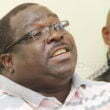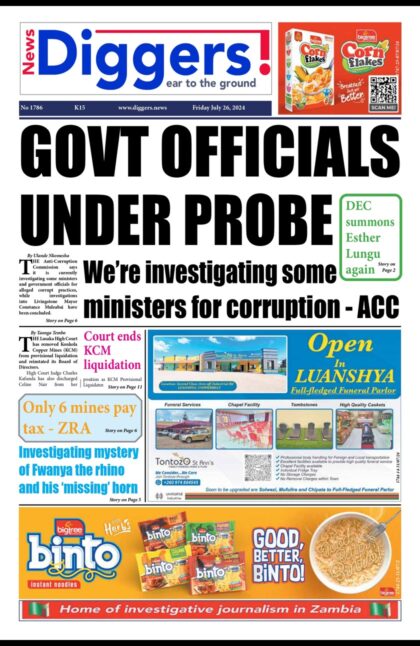AUTHOR Moono Chungu has advised Zambians against taking issues of tribalism lightly.
In an interview on her book titled “Routes”, Thursday, Chungu said Zambia should draw lessons from the genocide which Rwanda and Zimbabwe had experienced due to tribal conflicts.
“Seeing that I’m passionate about anti-tribalism, I have done quite a lot of research. And in Africa, I actually focus on this in my book, I highlight how Rwanda in 1994 and Zimbabwe in the 1980s had genocides due to tribal conflict. So focusing on it I knew it was something that can also happen to Zambia and it is also something that people would take lightly. I remember when I first started speaking against anti-tribalism in 2016, a lot of people used to think I was exaggerating. So I decided that you know what, if I actually have a problem with this, what am I going to do about it and being a lover of writing I decided then to write this book,” she said.
“Look at how election time is, these are topics I discuss. I discuss the 2016 election and highlight politicians who actually engage in tribal remarks. The same politicians I talked about then when I was writing the book were saying the same remarks during the last elections. So definitely because of those comments that are passed, some people do begin to believe the things that are said and therefore it creates tension within our community and within Zambia as a whole.”
Chungu advised politicians to refrain from issuing tribal remarks with the hope of getting voters on their side.
“What I would encourage politicians to do is to refrain from making tribal remarks with the hope of getting voters on their side. What we find is that most politicians who engage in tribal remarks will be passing comments like ‘you can’t vote for someone from that tribe because that tribe is like this’. So they are trying to attack one person but really they are affecting a lot of people and therefore dividing the nation,” she said.
“In my opinion, a lot of Tonga people do get biased. Being a minority, you have dehumanizing comments being passed their way such as ‘Tongas are cows’. Tongas have been affiliated to cows, even just in the way they speak, people saying ‘ha, he, ho’. But I do think that it has now reduced a little bit and I hope it will continue to reduce. I did hear a few comments here and there when HH won, people saying now we will just be speaking Tonga. I do hope it does not turn out that way.”
Chungu said she was impressed that tribalism in the country had somewhat reduced.
“It has reduced, I will definitely say that I have been very impressed. Maybe it’s because a lot of information that is following me now is surrounding my book. For me, I definitely think it has improved. Some of the people who were saying I was exaggerating in 2016 have actually come out and told me ‘thank you so much for showing your experience, I didn’t think it was that bad’. So I do think that it has reduced a bit, I definitely think that having a Tonga President might as well shake that. I think they (traditional leaders) are critical because as much as they have their own culture to focus on and embrace, I definitely do think that they should also embrace tribal mixing, tribal union and understanding other people’s cultures. The thing is that if chiefs and chieftainess pass a comment, a lot of people in their chiefdoms take it as gospel truth,” she said.
Meanwhile, Chungu expressed gratitude that her book, which was based on tribalism, had received positive feedback.
“It’s been received quite well. I released it exactly a month before the elections and the reason I did that is because the book’s main theme surrounds ‘One Zambia, One Nation’. I know during election time and this is what I propose in my book that when it’s election time, that’s when the tribal comments come out to play. So that’s why I released it then and it has been received really well. I think all the reviews and all the feedback that I have received have been very positive. I used to be worried about that (backlash), I had sleepless nights, I really thought that the book might get a lot of backlash but the response has been so good. I’m so grateful that I have had only positive responses to the book,” said Chungu.








